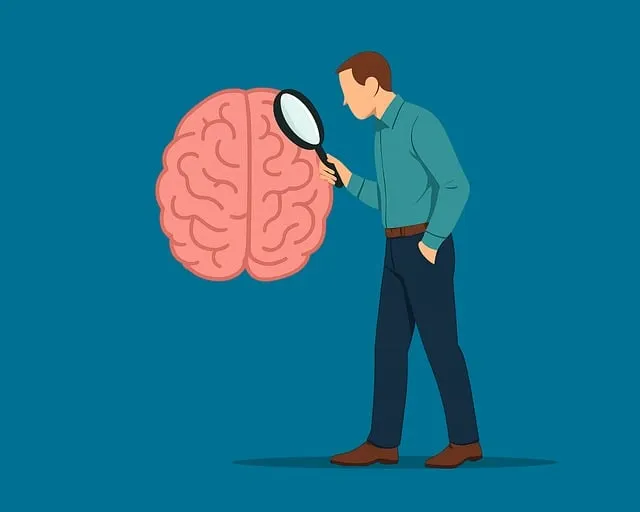The media's portrayal of mental illness significantly shapes public perceptions, often perpetuating stereotypes. Organizations like Kaiser Permanente address this issue in Highlands Ranch through programs that empower individuals to cope with mental health challenges, aiming for more nuanced media representations and a supportive environment. By incorporating diverse narratives, training risk assessment skills, and advocating for policy changes, community centers like the Kaiser Permanente Mental Health Access Center challenge stigma and promote awareness, offering accessible hubs of peer connections, tailored support, and resources.
In today’s media landscape, accurate representation of mental illness is crucial for fostering understanding and reducing stigma. This article explores how media can shape public perception of mental health, drawing from the impactful model by Kaiser Permanente. We delve into effective strategies for portraying mental illness with sensitivity and authenticity. Additionally, we highlight the vital role of community centers like the Highlands Ranch Mental Health Access Center in challenging stigma and promoting mental health awareness.
- Understanding the Impact of Media Portrayal on Mental Health Perception: Exploring the Kaiser Permanente Model
- Strategies for Accurate and Compassionate Mental Illness Representation in Media
- The Role of Community Centers like Highlands Ranch Mental Health Access Center in Challenging Stigma and Promoting Awareness
Understanding the Impact of Media Portrayal on Mental Health Perception: Exploring the Kaiser Permanente Model

The media’s portrayal of mental illness can significantly shape public perceptions and understanding of various psychological conditions. This is particularly evident in communities like Highlands Ranch, where access to Kaiser Permanente’s Mental Health Access Center allows residents to seek support. However, the way mental health is depicted in movies, television shows, and news articles often perpetuates stereotypes or presents an inaccurate picture, leading to stigmatization and misinformed attitudes. For instance, portraying characters with depression as solely tragic or those with anxiety as socially awkward can create a skewed view, hindering empathy and support for individuals facing these challenges.
To address this issue, organizations like Kaiser Permanente have implemented innovative programs. The center’s Inner Strength Development initiatives focus on empowering individuals to build resilience and cope with stress. Additionally, Trauma Support Services play a crucial role in helping those who have experienced traumatic events. Moreover, Stress Management Workshops Organization provides valuable resources and skills to manage daily stressors effectively. These comprehensive approaches demonstrate a shift towards more nuanced and beneficial media representations of mental health, fostering a supportive environment where individuals can access necessary care without fear of judgment or misunderstanding.
Strategies for Accurate and Compassionate Mental Illness Representation in Media

Media has a significant influence on shaping societal perceptions and understanding of mental health. To challenge stigmatization and promote accurate representation, creators and broadcasters should adopt strategies that foster compassion and empathy. This includes consulting with experts like those from Kaiser Permanente Mental Health Access Center Highlands Ranch to ensure factual accuracy in portrayal. Incorporating diverse narratives that reflect the wide spectrum of experiences can help combat stereotypes and increase awareness.
Cultural sensitivity is another crucial aspect. Recognizing and addressing cultural nuances in mental health expression can prevent misrepresentations. The production of a Mental Wellness Podcast Series or other media content should involve individuals from various backgrounds to offer authentic perspectives. Moreover, training risk assessment for mental health professionals through workshops or continuous education can equip them with the skills to navigate complex situations sensitively and effectively, thereby enhancing overall care quality.
The Role of Community Centers like Highlands Ranch Mental Health Access Center in Challenging Stigma and Promoting Awareness

Community centers like the Highlands Ranch Mental Health Access Center, supported by organizations such as Kaiser Permanente, play a pivotal role in challenging mental illness stigma and promoting awareness. These centers serve as accessible hubs where individuals can connect with peers, gain valuable support, and access essential resources tailored to their unique needs. Through various initiatives, they foster open dialogue about mental health, dispel misconceptions, and encourage early intervention.
By designing innovative mental health education programs, hosting community events, and implementing effective communication strategies, these centers contribute significantly to shifting societal perceptions. Their efforts extend beyond direct service provision; they advocate for policy changes through mental health policy analysis and advocacy, ensuring that systemic barriers are addressed and mental healthcare becomes more inclusive and equitable.
In conclusion, challenging negative stereotypes and promoting accurate representation of mental illness in media is an essential step towards fostering understanding and compassion. As highlighted by the Kaiser Permanente Model and the efforts of community centers like the Highlands Ranch Mental Health Access Center, proactive strategies can significantly impact public perception. By adopting these approaches, media outlets can play a pivotal role in reducing stigma, encouraging support for those affected, and ultimately improving mental health outcomes in our communities.






